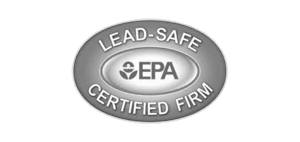If your house has been damaged by water, you may be wondering if it is safe to sleep in it. Water damage can create health risks that should not be taken lightly. In this section, we will explore these risks and discuss whether or not it is safe to continue living in a water-damaged home. We will also look at when it might be necessary to seek alternative accommodations.
Key Takeaways:
- Water damage can create health risks that should not be ignored
- Mold growth, exposure to contaminated water, and increased moisture levels can lead to respiratory issues and other health problems
- It is crucial to assess the extent of the damage before deciding whether it is safe to continue living in your home
- Seeking alternative accommodations may be necessary in certain circumstances
- Prioritizing your well-being is essential when dealing with water damage in your home
Understanding the Health Risks of Water Damage
Water damage may seem like a minor issue, but it can pose serious health risks if not addressed promptly. The excess moisture can lead to mold growth, which releases spores into the air that can cause respiratory issues like asthma and bronchitis. Additionally, if the water is contaminated, it can result in skin irritations, infections, and even more serious health problems.
Mold is one of the most significant health risks associated with water damage. It’s crucial to address mold growth as soon as possible to prevent it from spreading and causing further health issues. Aside from respiratory problems, exposure to mold can also lead to headaches, fatigue, and other physical symptoms.
It’s important to remember that the risk of health issues increases the longer the water damage is left untreated. Increased humidity levels create an environment where bacteria and viruses thrive. People with weakened immune systems, such as young children, elderly, and individuals with pre-existing respiratory issues, are particularly vulnerable to the effects of water damage and the resulting mold growth.
Remember: water damage can cause significant health risks, such as respiratory issues resulting from mold growth or exposure to contaminated water. If you suspect that you have water damage in your home, it’s important to address it promptly to mitigate these risks.
Understanding the Connection Between Mold Growth and Respiratory Issues
When mold spores are inhaled, they can trigger a range of respiratory issues from allergies to asthma, bronchitis, and coughing. The symptoms can vary depending on the type of mold, the amount of exposure, and the individual’s health. Individuals with pre-existing respiratory issues are more at risk when exposed to mold growth.
| Mold Type | Health Risks |
|---|---|
| Stachybotrys (black mold) | Skin and eye irritation, respiratory issues, fatigue, headaches |
| Aspergillus | Allergic reactions, lung infections, respiratory inflammation |
| Penicillium | Respiratory issues, skin irritation, hypersensitivity |
The extent of respiratory issues due to mold exposure may vary. Some people may experience mild symptoms, while others can experience severe reactions. It’s imperative to mitigate mold growth by turning to professionals for inspection and remediation, especially after dealing with water damage.
Be mindful of the respiratory issues that can occur when exposed to mold growth, such as allergies, asthma, bronchitis, and coughing. Turn to professionals to inspect and remediate your home to mitigate these risks.
Evaluating the Extent of Water Damage
Assessing water damage is crucial to accurately determining the safety of your living environment. Structural damage is a common issue caused by water damage and can result in collapse or instability of load-bearing elements in the house. Inspect the foundations, walls, and floors for any cracks or water-logged areas, and contact a structural engineer to assess the severity of any identified issues.
Electrical hazards are another potential risk posed by water damage. Water can cause electrical malfunctions and short circuits, which in turn can lead to electrical fires. Inspect your home’s electrical system and appliances for signs of water damage and contact an electrician to conduct a detailed evaluation if needed.
When evaluating the extent of water damage, look for signs of mold growth and moisture, which can cause respiratory issues and other health problems. Check for visible mold growth or a musty odor, and consider using a mold testing kit to determine if further action is necessary.
To evaluate the extent of water damage comprehensively, refer to the table below:
| Factors to Consider | What to Look for | Actions to Take |
|---|---|---|
| Structural integrity | Cracks, warping, distortions, or other visible indicators of damage | Contact a structural engineer for a detailed assessment |
| Electrical system | Water-logged or damaged electrical components, short circuits, or other malfunctions | Contact an electrician to conduct an evaluation and take necessary action to repair or replace any damaged components |
| Mold growth and moisture | Visible mold growth, musty odors, water stains, or increased humidity levels | Conduct a detailed evaluation of the affected areas and use a mold testing kit to determine the extent of mold growth, then take appropriate remediation measures |
By thoroughly evaluating the extent of water damage in your home, you can take the necessary steps to ensure the safety of your living environment and avoid potential health risks.
When Should You Seek Alternative Accommodations?
If your home has suffered extensive water damage or has become inaccessible due to the damage, it may be necessary to find alternative accommodations. In these scenarios, the safety risks posed by the water damage outweigh the convenience of staying put.
Extensive water damage refers to situations where the damage has affected multiple rooms or floors of your home, or where the damage is so severe that it poses a threat to the structural integrity of your residence. In addition to the potential for collapsed structures, extensive water damage can lead to electrical hazards and mold growth.
Inaccessibility is another factor to consider when deciding whether or not to seek alternative accommodations. If your home has suffered water damage that makes certain areas or rooms unable to be used, it can be challenging to maintain a comfortable living environment. Inaccessible parts of your home can also make it difficult to assess the full extent of the damage, which can create safety concerns.
If you find yourself in a situation where extensive water damage or inaccessibility threatens the safety of your home, it is prudent to seek temporary housing options. This could include staying with friends or family, renting a furnished apartment or hotel room, or other suitable alternatives.
Conclusion
When it comes to water damage in your home, prioritizing your health and safety is paramount. While it may be tempting to tough it out and continue sleeping in your house, it is important to carefully evaluate the risks involved.
By understanding the various health hazards associated with water damage, you can make an informed decision about whether it is safe to stay in your home. Additionally, assessing the extent of the damage and any potential structural or electrical hazards can help you gauge the level of risk.
In some cases, seeking alternative accommodations may be the best course of action. This is particularly true in situations where the water damage is extensive or inaccessible, making it impossible to guarantee your safety.
Ultimately, the decision to continue sleeping in a water-damaged home should be made with caution and consideration. By staying informed and taking proactive steps to prioritize your well-being, you can help ensure that your living environment remains safe and healthy.
FAQ
Is it safe to sleep in a water-damaged home?
It is not recommended to sleep in a house with water damage. The presence of water damage can lead to health risks such as mold growth and respiratory issues. It is important to address the damage and create a safe living environment before considering staying in the house.
What are the health risks associated with water damage?
Water damage can pose various health risks. One of the primary concerns is the growth of mold, which can release harmful spores and allergens into the air. Exposure to contaminated water can also lead to gastrointestinal issues. Additionally, increased moisture levels can contribute to respiratory issues such as asthma and allergies.
How can I evaluate the extent of water damage in my home?
To assess the extent of water damage, it is essential to consider several factors. Start by examining the structural integrity of the affected areas, looking for signs of damage or weakening. It is also important to check for any electrical hazards that may have been caused by the water. If you are unsure about the extent of the damage, it is advisable to consult a professional.
When should I seek alternative accommodations?
It is recommended to seek alternative accommodations when the water damage in your home is extensive or inaccessible. If the damage poses a significant safety risk, such as compromised structural integrity or potential electrical hazards, it is prudent to consider temporary housing options. Prioritize your well-being and consult with professionals to determine the best course of action.






